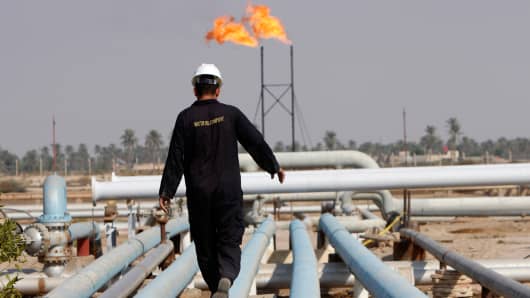Back to the changing landscape, and I am the first one to question the claims made at COP21 about the end of fossil fuels, the death of carbon and so on ...
And yet it doesn't take a binary shift in consumption patterns, tax and regulation to put in jeopardy billions of dollars' worth of "future" investment in the oil industry. It's not today's supply and demand that is the real problem, despite the daily oversupply of oil at the moment of over a million barrels. It's the future balance that is key on both investment and consumption.
The real problem for OPEC and BP and Exxon and all the others, including the shale upstarts, is the threat of COP21 creating a process whereby stranded assets in hydrocarbons are created, where, oil, coal and to a lesser degree gas, are unborneable and uninvestable. Bank of England governor Mark Carney and others have raised this concern. It's real and terrifying for long term oil investors and producers.
If the International Energy Agency's predictions are correct, cumulative demand for oil could be lower by over 100 billion barrels over the next few decades and, as Barclays points out, this could mean $22 trillion of revenue for producers that will never be realised. $22trillion!
In addition, to the COP threat, let's not forget the other major structural trends going on in oil supply. Shale has been seriously underestimated by OPEC and has not seen production fall off a cliff in response to the halving of crude prices. Yes, production is off its peak but by a fraction of what was expected to be the case at $40 per barrel.
Plus the not small matter of the end of what was labelled the "supercycle" with China and the rest of emerging markets seeing a marked growth slowdown. Put them all together and you have a triumvirate of structural factors overwhelming the producers.
Do we really believe a tweak in Saudi Arabian oil production and a tweak in the language at OPEC Friday is going to overcome these three major structural challenges? OPEC has proven more robust than many detractors had thought possible for decades but against the combination of the COP21 process, shale's stunning arrival and the end of the Supercycle, I for one question the ability to control things in quite the same way of old.
Steve Sedgwick is co-anchor of "Squawk Box Europe" and is also CNBC's OPEC reporter. Follow him on Twitter @steve_sedgwick.
Follow CNBC International on Twitter and Facebook.





